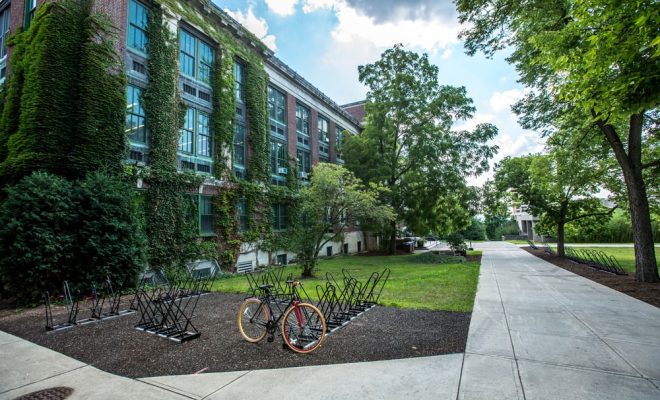What Is College Decision Day?

Many high school seniors can’t wait for their College Decision Day. After all, it’s one of the biggest days of their academic lives. Anyway, what does this day entail?
Generally, U.S. colleges and universities acknowledge first-year applications in the fall before dispatching acceptance agreements come spring. But how does this affect the Decision Day for potential students?
Usually, students are required to commend to a college by May 1. They usually get their offer letter months earlier, allowing them to respond anytime and secure their spot before this date.
When applying for a college of their choice, applicants usually request many colleges, including the one they prefer. Colleges and other related four-year institutes give multiple deadlines throughout the year alongside rolling admissions to give students more flexibility.
Below you will find more details about College Decision Day, the ethics of double deposits associated with it, and how to brace yourself for this day. Keep reading!
Do You Have to Choose a College on Decision Day?
Most U.S. colleges and universities allow regular first-year applicants to choose a college to join up to May 1. Before this date, they must confirm their joining and submit their non-returnable admission deposit.
Admission decisions usually arrive early, mid-December for applicants who enrolled early decision. The early decision involves deciding your college choice well before May 1, your College Decision Day. And as such, early decisions are binding, requiring you to join that college once admitted.
You can withdraw from an early decision due to grave situations such as a family crisis or inadequate financial aid. Some reasons for backing out aren’t acceptable. For example, withdrawing because you want to attend a different college that you perceive as a better fit can lead to penalties for absconding from the early decision contract.
Before deciding to change your college after accepting admission, consider your enrollment deposit. It may be possible to change your college, but you will lose the enrolment deposit, which is non-returnable and helps you book your spot.
What Is Double Depositing? Can You Do It?
Double depositing is a scenario where students pay an enrollment deposit for more than one college after confirming their offers. With double depositing, you not only lose your money but since these deposits are non-returnable: It’s also considered unethical.
Generally, some students use double depositing to buy more time since they get more time to arrange financial aid and contrast their options.
Why Is Accepting Multiple Offers Unethical?
Confirming more than one offer of admission is widely immoral simply because a scholar cannot join several colleges.
It’s even a risk because your potential college may invalidate your offer of admission if they find out that you’ve accepted another offer and paid a second deposit for another college. Paying your enrollment deposit implies you’ll attend that university only.
You’re double-crossing colleges because you’re confirming your attendance and failing to do so. And that’s largely unethical.
Accepting multiple offers is unfair and disadvantages other applicants because you’re affirming a spot at a college that you will not join.
Consider contacting a college admissions officer if you change your mind about their offer and depositing your enrollment fee. They will help you determine how to decline your admission before putting down the enrolment deposit at the other college.
How to Prepare for Decision Day
Before you commit to a college, it’s wise to find out about their tuition to transportation options because you’ll be there for four years, which is a lot of time. To find a suitable college, list your preferred institutions to help you compare them.
How Students Can Prepare
Getting ready for College Decision Day is all about cutting down your choices. Use this opportunity to find out how to confirm your college offer and plan yourself. For example, by determining if the colleges you’re joining require a deposit, you’ll be able to figure out your finances well.
You can further contact your preferred colleges to determine if they provide an extended deposit deadline; and learn about their consultants, student services, courses, and other facilities.
How Parents/Guardians Can Prepare
Parents and guardians prepare for Decision day by guiding students through the paperwork and identifying scholarships. They should also discuss student finances, such as attendance expenses, financial aid commitments, and accepting loans.
Parents and guardians also play an integral role in the college planning process, as they help students complete the FAFSA. Ensuring their students fill out FAFSA early gives them more time to scrutinize financial aid options.
What Should I Do If I Miss Decision Day?
Various reasons may make it impossible for students to meet the May 1 deadline. For example, a family crisis, natural calamities, and pandemics such as Covid-19. Contact the college admissions office should you miss the date due to such situations.
Some colleges may understand your predicament and grant you an extension if you have a legitimate reason to miss the date. Sadly, for most colleges, deadlines are final, as they are stringent about College Decision Day’s due date.
Don’t fret, though, because that’s not the end of your academic life. You can take a gap year and apply the following year again when the application process rolls in.
You can also opt for other colleges offering rolling admission if you can’t wait for another year. A community college also allows you to enroll with them and learn some general education requirements, and you can transfer later to your preferred college.






